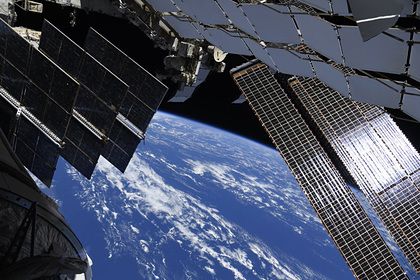In the 1990s and later, the United States and its allies depended on Russia for practical technologies of modular space stations, manned space exploration and cargo delivery to near-Earth space, which is no longer observed at the present time, says the British newspaper Financial Times.
Director of the National Space Center (Great Britain) Anu Oja, who was interviewed by the publication, admitted that NASA and the European Space Agency (ESA) were unable to build the International Space Station (ISS) without the participation of Russia. "The Russians were masters of building modular space stations," the expert said.
The newspaper writes that, in addition to experience in the construction of modular stations, the Western side needed " Russian equipment to deliver materials and people to the ISS and back." The publication notes that this dependence increased ten years ago, when the United States stopped operating the Space Shuttle, fully trusting the Russian "Unions".
According to the Financial Times, NASA's dependence on Roscosmos disappeared after the appearance of the SpaceX Crew Dragon spacecraft. The publication notes that the US cooperation with Russia provided "Roscosmos", "experiencing a shortage of funds", "the necessary access to Western funding."
The Financial Times recalls that Russia has now refused to participate in the international lunar project Artemis, which is being worked on under the leadership of the United States, and in the field of space, instead of cooperating with the West, it is strengthening cooperation with China.
In April, the general director of Roscosmos, Dmitry Rogozin , said that the state corporation, after withdrawing from the ISS project, allows the transfer of the Russian segment of the orbital laboratory to NASA. According to the manager, the Russian segment of the station is worn out by 80 percent, and its maintenance "will require approximately the same funds that will be needed from 2025 for the deployment of a separate national Russian orbital station."
Ivan Potapov

